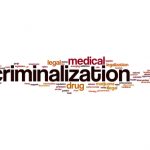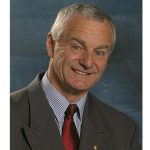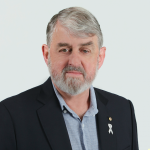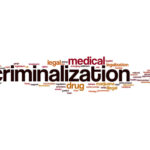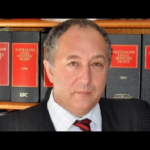Berejiklian’s Drug Depenalisation: A “Modest” Step Towards “Inevitable” Decriminalisation
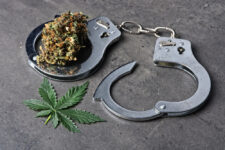
At a 30 November meeting, NSW government cabinet ministers discussed a three-tiered system of depenalisation for the offence of personal drug possession.
First spruiked by attorney general Mark Speakman, the step-in-the-right-direction policy gained broad, but not unanimous, support.
A conservative minister went on to leak word of it to the Seven Network. It then misrepresented the policy as decriminalisation, whereas the government proposal doesn’t aim to remove the criminal offence altogether, but it would rather heighten the threshold as to when sanctions apply.
Under the depenalisation model, a person found in possession of a quantity of an illicit substance deemed personal would receive a warning. If caught a second or third time within the next twelve months, a fine would apply. And a fourth time within a year would lead to potential charges.
Drug law reform advocates have hailed the depenalisation proposal as a “small” step towards dealing with drugs as a health issue and not a crime.
Indeed, any harms associated with substance use can only be properly addressed societywide once the greater harms of criminalisation are withdrawn.
And while the government’s proposal is a far cry from the decriminalisation model the Inquiry Into the Drug Ice and the NSW Coroner have recommended, ultra-conservative parliamentarians are digging in their heels against depenalisation and calling for the current broken system to continue.
Dragging its feet
“The proposed responses by the NSW cabinet to the recommendations of the Special Commission Into the Drug Ice are very minimal,” said Australian Drug Law Reform Foundation president Dr Alex Wodak.
“The inquiry was commissioned at a time when there was considerable community and government anxiety about illicit drugs in NSW, especially in relation to crystalline methamphetamine – ice.”
Established by NSW premier Gladys Berejikilian, the Special Commission Into the Drug Ice tabled its final report in January. It recommended the decriminalisation of personal drug possession and use, as “the criminalisation of low-level personal drug use offences is associated with extensive harms”.
Dr Wodak pointed out that the government “rejected almost immediately” five of the 109 report recommendations, which had “previously been proposed many times before”. These included pill testing, abolishing drug dogs, more safe injecting facilities and prison needle and syringe programs.
The drug law reformer further told Sydney Criminal Lawyers that Berejiklian’s depenalisation would simply “bring NSW into line with all other states, except Queensland” regarding options other than charges for personal possession, which is similar to the way our state currently deals with cannabis.
Decriminalisation is key
Section 10 of the Drug Misuse and Trafficking Act 1985 (NSW) makes it a crime to possess quantities of illegal drugs for personal use, while section 12 outlaws taking illicit substances. Both offences carry maximum penalties of up to 2 years imprisonment and/or a fine of $2,200.
Since April 2000, NSW has had a cannabis cautioning scheme in operation. It provides police with the discretion to issue a cannabis caution to adults found in possession of up to 15 grams of cannabis. Under the scheme, an individual is permitted up to two cautions before charges must be applied.
A 2011 NSW auditor general’s report found that over its first decade the cannabis cautioning scheme had diverted more than 39,000 minor cannabis offences from the courts. The auditor general stated that cautioned individuals are less likely to reoffend than those who are charged.
However, this system of cannabis depenalisation continues to produce regular drug war harms.
The Guardian reported earlier this year that 82 percent of First Nations people found with small quantities of cannabis in this state still end up in court.
And despite the NSW police drug dog program having been established after the cannabis cautioning scheme, on the majority of occasions that officers actually do locate any drugs, it’s small amounts of cannabis. Mind you, at least two-thirds of the time a drug dog indicates, nothing is found.
In terms of outcomes, the NSW drug dog program primarily targets tiny quantities of cannabis, and it leads to people being strip searched over a substance that police can choose to overlook.
“By retaining personal possession of illicit drugs as a crime, NSW would make other reforms extremely difficult and unlikely,” Dr Wodak made clear. And he added it would result in more of the same: a growing black market, with a widening range of new and potentially more dangerous drugs.
“This in turn means that over time there would be higher rates of drug-related deaths, more community concern and higher government spending on law enforcement,” he continued.
Getting past the knee-jerk
Soon after the depenalisation policy was leaked to the press, deputy premier John Barilaro and police minister David Elliott were vocally campaigning against it. This is “despite the manifest failure of current drug policy”, Dr Wodak stressed.
Opposition from National MPs was strong, and about as progressive as a bunch of AM radio talkback hosts.
Nationals MP for Dubbo Dugald Saunders said the proposal wasn’t thought out properly, even though his constituency has just secured funds to establish a local rehabilitation clinic to deal with the region’s growing drug issues. And his colleague Nats MLC Sam Farraway echoed his opinion.
What parliamentarians like these are failing to see is that while depenalisation – or the real goal of decriminalisation – may ostensibly seem like backwards steps after a century of drug prohibition, treating drugs as a health issue is what’s been shown to work in jurisdictions like Portugal.
“Probably the most important factor to the resistance to drug law reform is a simple deep prejudice against any drug law reform which defies logic and understanding,” Dr Wodak underscored.
A global trend
When Portugal decriminalised the personal possession and use of all illicit substances in 2001, around one percent of its population was dependent upon heroin. By 2016, the nation’s drug-induced death rate was five times lower that the European average.
Much of the NSW premier’s policy reforms relating to illegal drugs over the past two years has been in response to drug-related deaths at NSW music festivals. And Speakman’s depenalisation scheme marks the most forward-thinking proposal since then.
Five young Australians died at festivals over the summer of 2018-19. Of course, tens of thousands of young people didn’t die after taking drugs that festival season. And the implementation of pill testing and the removal of drug dogs could have potentially saved those who lost their lives.
Dr Wodak outlined that the 2019 National Drug Strategy Household Survey found that 41 percent of Australians now support the legalisation of recreational cannabis use, compared with 37 percent who are opposed. And this was the first time support had exceeded opposition.
“Thirty one UN organisations with responsibility for drug policy now support decriminalisation of drugs,” Dr Wodak concluded.
“If the opponents of reform in the NSW cabinet have their way, all they will succeed in doing is delaying the inevitable.”


